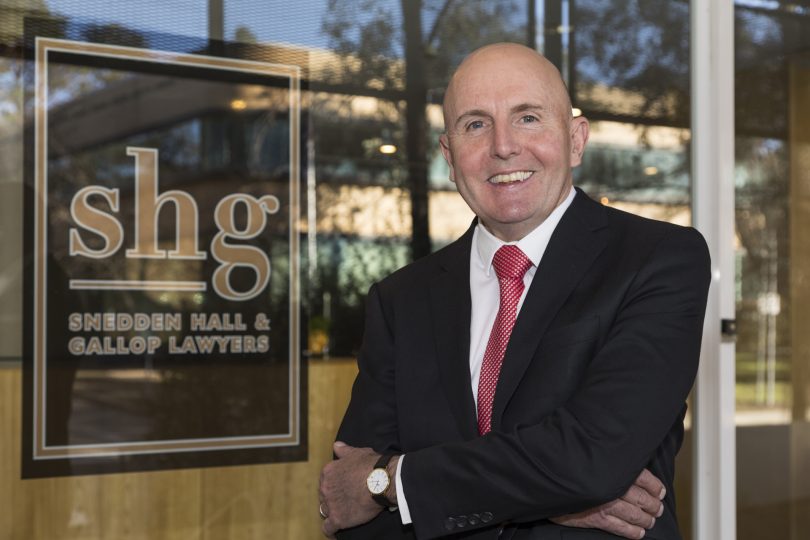
Richard Faulks, managing director, Snedden Hall & Gallop, has valuable advice regarding Commonwealth superannuation schemes. Photo: Region Media.
The amount of superannuation you have accumulated by the time you retire can make a big difference to the type of retirement you can enjoy.
With some superannuation schemes being more beneficial than others, imagine if you had been denied entry to join one of Australia’s most lucrative superannuation schemes provided to government workers. That is the reality for many people who were wrongly advised on their eligibility to join lucrative Commonwealth superannuation schemes.
The date of 1 July, 2020, marks 30 years since the Public Sector Superannuation (PSS) scheme was introduced, replacing the Commonwealth Superannuation Scheme (CSS). It’s timely to consider people who missed out on substantial superannuation benefits because they were incorrectly advised on their eligibility.
With many workers getting older, and strict time limits on claims, time may be running out for them to claim compensation.
Richard Faulks, managing director and head of the superannuation team at Snedden Hall & Gallop lawyers, has helped many clients obtain compensation for periods of lost PSS and CSS membership after they were wrongly advised about their eligibility to join different schemes.
Richard says that to pursue claims of this type it is essential to fully understand complex superannuation legislation.
After working on these types of matters for more than 20 years, he has the required knowledge and experience to help clients in need.
“We conducted the groundbreaking Cornwell case [in 2007], which is effectively the test case that was pursued successfully all the way to the High Court,” says Richard. “That case established the right to make claims for compensation for periods of lost membership.”
Claims are subject to complex rulings about time limits on the right to bring a claim.
“There is a six-year time limit in which employees can file a claim about being wrongly advised about their eligibility and the decisions they made about their super based on that information,” says Richard.
“For example, an employee may decide to take a redundancy based on their current financial situation, but had they been part of one of the more generous Commonwealth superannuation schemes, they may have chosen to defer such a decision. Or alternatively, retire at an earlier date.”
Who takes responsibility for information provided to employees continues to be a contentious issue. Rather than going to court, individual cases are being resolved by alternative dispute resolution processes.
Due to time limitations, Richard says people who are in a situation similar to Mr Cornwell – they’ve retired from their job with the Commonwealth or statutory authority within the past six years – should not delay investigating their rights if they feel they were wrongly advised about their superannuation eligibility.
“If you have not yet retired, you have six years from when you leave your employment,” he says. “This gives you time to start assembling any relevant documents to support your claim.”
Because people are generally living longer, retirement can last a very long time. So it is more important than ever to ensure you have the superannuation income you are entitled to.
If you are seeking legal advice in relation to Commonwealth superannuation, contact Richard Faulks on 02 6424 5496 or email at [email protected].
Original Article published by Snedden Hall & Gallop on The RiotACT.
This is a sponsored article, though all opinions are the author’s own. For more information on paid content, see our sponsored content policy.


What's Your Opinion?